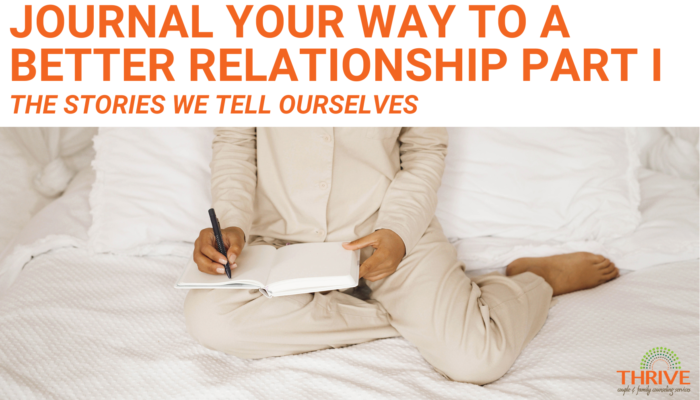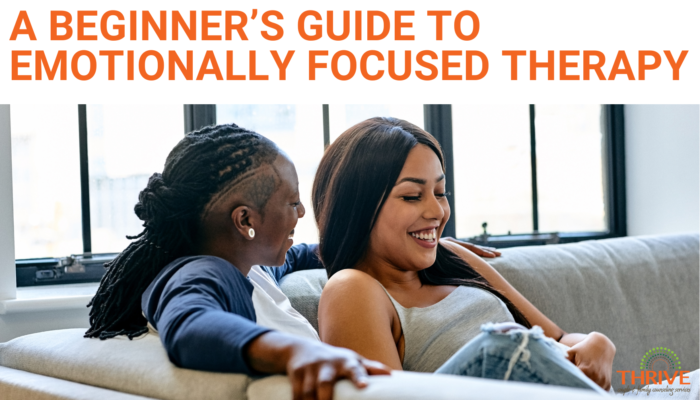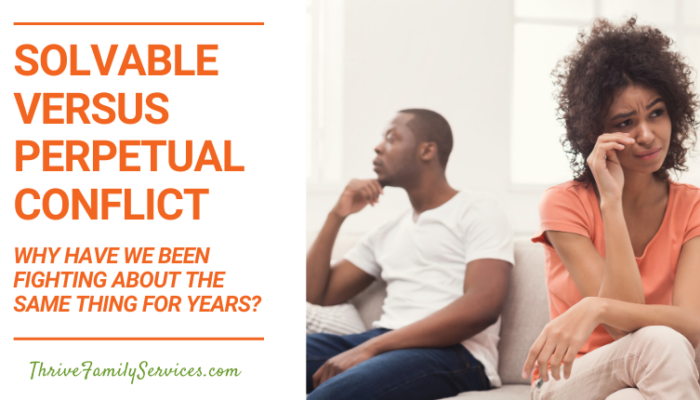Journaling Prompts to Improve My Relationship
How journaling can help you succeed in Communication Counseling for your relationship!
“Who are we but the stories we tell ourselves, about ourselves, and believe?”
Scott Turow, Ordinary Heroes
Journaling can positively impact our lives by providing a way to increase joy and gratefulness, understand the dynamics of our relationships, focus on our goals, and impact our physical health. It’s even been found that expressive writing may help heal not only emotional wounds but also actual physical wounds. That is powerful! So how can we tap into the power of journaling to learn about ourselves, process emotions, and grow closer to the ones we love?
How can journaling help me learn about myself?
One way is looking through the lens of a style of counseling called Narrative Therapy.
The Narrative theory is very much like Emotionally Focused Therapy in that it is collaborative and non-pathologizing in nature. That means we don’t stick a label on your situation but look to you as the expert of your own life!
What is Narrative Therapy?
In Narrative Therapy, individuals and couples make meaning of their lives through the life stories they tell. These lived journeys include a sequence of events linked together by a theme or a common message learned along the way. In Narrative Therapy and EFT, relationships are central to shaping our lives and spurring us towards change and growth. Have you ever thought about the universal theme of your relationships?
By the time you have decided to enrich the understanding of yourself and your partner through counseling, you have often developed a story about who you are as a person, or in Emotionally Focused Therapy terms, a “View of Self” and “View of Others.” We often come to therapy with a rigid perspective of who we are and how we handle relationships. We may see ourselves as a success in some areas of our lives and “broken” in others, making conclusions about our identity based on how loving or secure our relationships have been.
How are Narrative Therapy and Emotionally Focused Therapy Different?
Emotionally Focused Therapy holds that people are not the enemy or the problem in relationships; simply put, “the problem is the problem.”
The negative communication cycle we all get caught up in with our loved ones can keep us stuck in an inflexible, fixed, and monotonous plotline. This can make us feel powerless and the opposite of the hero we each desire to be in our own story!
The truth is, we have the control and power to write and rewrite our stories. The narrative you tell yourself about your identity or role, the identity of the ones you love, your love novels, and family memoirs are influenced by your values, commitments, intentions, memories, and influences along the way.
Your story can and will expand and evolve as you seek out healing and vulnerability through EFT. We can rework our stories to include the new ways we are developing, changing, growing, seeing the world, one another, and ourselves through journaling.
How Can Journaling Prompts About Your Relationship Help the Therapy Process?
We can incorporate writing by continuing to process what we are learning and feeling in between counseling sessions. Here are some ways that journaling can help you process therapy.
Journal to Reflect
Journaling is a tool for reflection and contemplation. We can take quiet time to think about our actions, thoughts, views of ourselves and our world, to discover primary emotions beneath the surface, and attachment longings at our core. Writing can help us make sense of our life’s patterns and find deeper themes and meaning.
Journal for Flexibility
Journaling can help move us away from black and white thinking and rigid behavioral patterns into more fluid and compassionate modes of problem-solving. We can brainstorm possibilities we never thought were open to us or our relationship as we get more in touch with the vulnerable emotions that connect rather than separate us.
Journal Your Stories
“Journaling is storytelling to ourselves.” Our stories can take on more significance and permanence when written down. Journaling gives us insight into how we interpret life, relationships, reality, love, forgiveness, spirituality, and society. This insight can help us see what we have been telling ourselves and rewrite how we want our relationships to be regarded.
Stories can also tap into the attachment side of our past and history. As we make sense of where we have come from, we can understand why we do what we do in the present. This can empower us and take control away from unspoken memories and trauma that may have held us captive in the past.
Journal Your Growth
As we see our thoughts, feelings, and beliefs on screen or paper, they become explicit through the visual. We can look back and see clearly how our thinking and ideas about the world and our relationships have changed as we review the “new” versus the “old me.”
Journal Your Plans
Finally, we can record commitments and plans for the future. Journaling is a way to keep us accountable for having that tough conversation, analyzing the cycle, or seeing what was underneath our knee-jerk, instinctive reactions. As we write and commit to acting outside of our typical cycle, we can create a new narrative and live out a more authentic journey.
As Epson (1991) shares, “the words in a letter don’t fade and disappear the way conversation does; they endure through time and space, bearing witness to the work of therapy” (p. 31.).
What should I journal about?
Journaling Prompts to Improve My Relationship
As you continue to take a deeper look in therapy, you will discover cycles and patterns within yourself and within your most important relationships. Here are some questions to consider journaling through to keep the learning process active between sessions. You can pick and choose what questions apply to you in your current “plot point.”
- What are the things you like most about your relationship? What do you like most about your partner? What are positive attributes your partner brings to the relationship? What do you bring to the relationship that helps your partner to feel loved and supported?
- Write about what drew you to one another when you first met. Write out your story of falling in love or revisit special moments you have shared with one another.
- Journal about a recent argument or disagreement. How did it start? How did it end? What triggered you during the fight?
- What does your typical negative communication cycle look like? Who pursues and who tends to protect or withdraw?
- What are ideas you have of what to do to slow down and stop the cycle? What would help you to feel more secure and understood when your typical pattern of disconnection begins?
- Are there any past or childhood triggers that come up when you and your partner begin to disagree? How can you start to process and heal from these past hurts? Are there any attachment needs that you have discovered that you could start to share with your partner?
- When is the last time you asked your partner for comfort? How did they respond? What about the last time your partner needed comfort? How did you respond?
- What do you do when you are feeling overwhelmed or alone? What would it feel like to go to your partner for comfort or support? Can your partner come to you when they feel they need someone to lean on or talk to?
- How do you feel about your current sexual connection? What would make intimacy better for you? What could you do to make this connection a better experience for both of you?
- Name some ways you have seen you and your partner have grown together since you started the counseling process. Can you compare/contrast the ways the “old you” would have handled conflict with how the “new you” approaches difficult conversations?
- What are your triggers? What are your partner’s triggers? What is the underlying idea you are believing about yourself or your relationship when these triggers come up?
- Is there a tender, more vulnerable side of your partner that you have seen emerge? If so, what has it been like to experience this new side? What aspects of yourself or different ways of relating to your partner have you discovered?
- What goals/dreams do you have for your relationship? What are goals/dreams that you have for yourself or your family as a whole?
Where can I learn more about journaling + therapy?
Stay tuned for more to come on journaling through your therapy process, including letter-writing, expressive authoring, visual journals, and more questions to ask yourself as you write and revise your story for and with the ones you love!
For more support in improving your relationship or using a journal to connect with your inner emotions, schedule a visit with one of our therapists.
References
- Bjoroy, Anja, Madigan, Stephen, and Nylund, David (2015). The Practice of therapeutic letter writing in narrative therapy. Chapter 20.
- Emmons RA, McCullough ME (2003). Counting blessings versus burdens: an experimental investigation of gratitude and subjective well-being in daily life. J Pers Soc Psychol. 2003 Feb;84(2):377-89. doi: 10.1037//0022-3514.84.2.377. PMID: 12585811.
- Epston, D. (1994) ‘Extending the conversation’. Family Therapy Networker, 18(6), 31–37, 62–63.
- Feldman, David B. (2020). The Power of Journaling Can journaling help us cope during troubled times?
- Koschwanez, Heidi E. PhD; Kerse, Ngaire MBChB, PhD; Darragh, Margot MSc; Jarrett, Paul FRCP, FRACP; Booth, Roger J. PhD; Broadbent, Elizabeth PhD (2013). Expressive Writing and Wound Healing in Older Adults: A Randomized Controlled Trial, Psychosomatic Medicine: July/August 2013 – Volume 75 – Issue 6 – p 581-590 doi: 10.1097/PSY.0b013e31829b7b2e.
- Mims, Rachel (2015). Military veteran use of visual journaling during recovery, Journal of Poetry Therapy, 28:2, 99-111, DOI: 10.1080/08893675.2015.1008737.
- Starfire Lea, Amber (2020). Writing Through Anger.
- Stone, M. (1998). Journaling with Clients. Journal of Individual Psychology, 54(4), 535.




